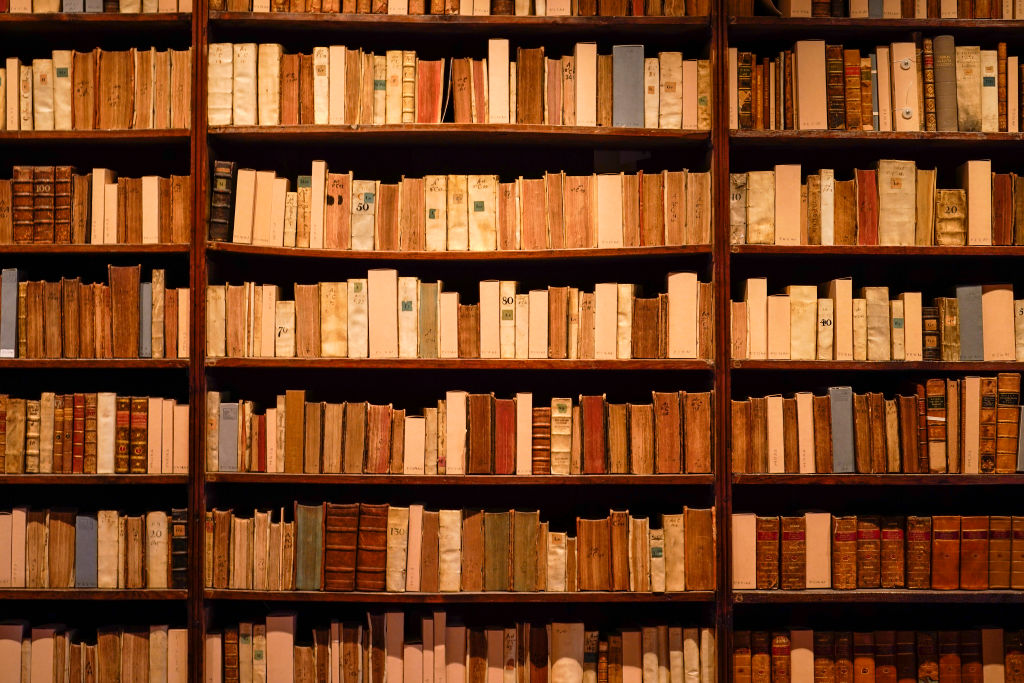The greatest men make the greatest mistakes. One thinks of the late John Lukacs, the Hungarian-American historian who claimed that the age of the book is at an end. That is far from being the case, the electronic book having failed to drive the print version to extinction as enthusiasts had predicted. Indeed, the continuing flood of printed and bound books remains among the greatest threat to books today — good books, that is, books worth an intelligent man’s time.
What is over and done with is literature, in the true and most comprehensive sense of literature as literary culture: a culture that includes not only seriously minded people writing seriously minded books written in a literary style that respects language, refines and advances it, but also professional critics, reviewers and other people reading and writing about literature; writers, publishers and editors in correspondence with one another and people outside the sodality reading their collected letters; readers writing to authors about their books, and vice versa, und so weiter.
All of this belongs to literature, because, as I say, literature is a culture; and that culture is not only dying, it is dead, though the body may still be warm. The forensic causes of death range from the technological to the social to the institutional — and beyond. The habit of letter-writing is a lost one, owing partly to email. Why epistolary correspondence survived the invention of the typewriter and the telephone but not the computer is unclear, as email is easier still to use, and much quicker. Probably it is associated in some way with the demise of the cocktail and dinner party, themselves casualties of hectic and hyperactive postmodern society driven by a dearth of time imposed by careerism and by radio, television and social media in particular. Literature and leisure have always been inseparable, and they remain so; and the world has murdered leisure everywhere.
Beyond these things lie various institutional causes, principally the appalling state of public education in the demotic, plebeian and utilitarian cultures of the West, and their rampant politicization in an era when democratic government is in crisis. Well before the advent of multiculturalism — cultural Alzheimer’s disease in self-induced form — the audience for Classical literature had been limited mainly to pedagogues and their helpless victims in the academies; to a critical establishment that was becoming less of an establishment every year; and to the tiny, and steadily dwindling, number of educated readers among a semiliterate general public. Authors going back three and four millennia, and imagined until the day before yesterday to be immortal, became, almost overnight, forgotten, their names unrecognizable and their books unheard of. Meanwhile, contemporary authors of high talent and even genius understand, if they are honest with themselves, that whatever fame they may possibly enjoy will vanish after the proverbial quarter of an hour, their books having been consigned to oblivion by a public that has no more inclination for reading than it has for skittles or tatting.
It is unsurprising that writers nowadays who aspire to nothing higher than cheap fame, the adulation of that small portion of the masses that reads at all, movie contracts and filthy lucre continue to turn out products with a superficial resemblance to books in a spirit of optimism and high expectation. But the indomitable determination of the pitiably few genuine artists — those endowed with literary gifts and keen, developed intellects plus refined spiritual instincts — to curse the darkness, retreat to their monastic cells, lock the doors, seat themselves at their desks and proceed to write novels, short stories, plays and poetry that conform to no literary standards save their own and that of their predecessors is hardly short of miraculous. Such people are born to write, and to write as best they can for the readers they, for the most part, can only imagine, aware that they must write — as they must breathe, eat, and drink — whether their work is read or not, or even published tomorrow, a decade, or a century from now. And they do so in confident tranquility but with the greatest care — which Flannery O’Connor said was also the least care.
For now, however, literature in the West is dead for the simple reason that the West itself is virtually dead, like a campfire in the wilderness where a few embers waver while now and again emitting a spark or two. It is unlikely to be unearthed by a posterity whose ancestors committed patricide in a prolonged fit of satanic hatred and self-willed insanity, and still less likely to be revived by successive cultures, as Western antiquity was rediscovered and partially renewed and improved upon in the eleventh century and afterward. Instead, it is more likely to be replaced in time by something wholly new, and hence unforeseeable from the vantage of the early twenty-first century. Should that not happen, it will be because the world itself is dead, or, to put the thing into theological terms, because the end of the world will have arrived as promised.
A recent contemporary author said before he died that he was certain of one thing: “There will no books in Heaven.” That, it seems to me, is a highly dubious proposition. What is sure is that, in the Hereafter, there will be no bad books, or spurious makers of them.
This article was originally published in The Spectator’s February 2022 World edition.


















